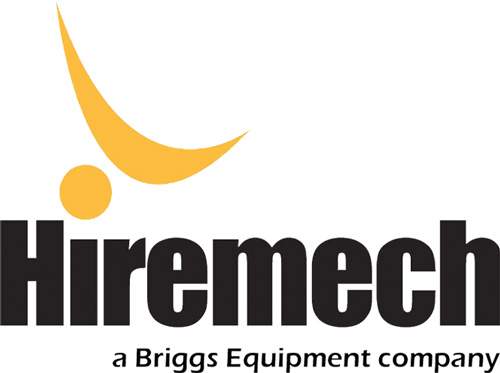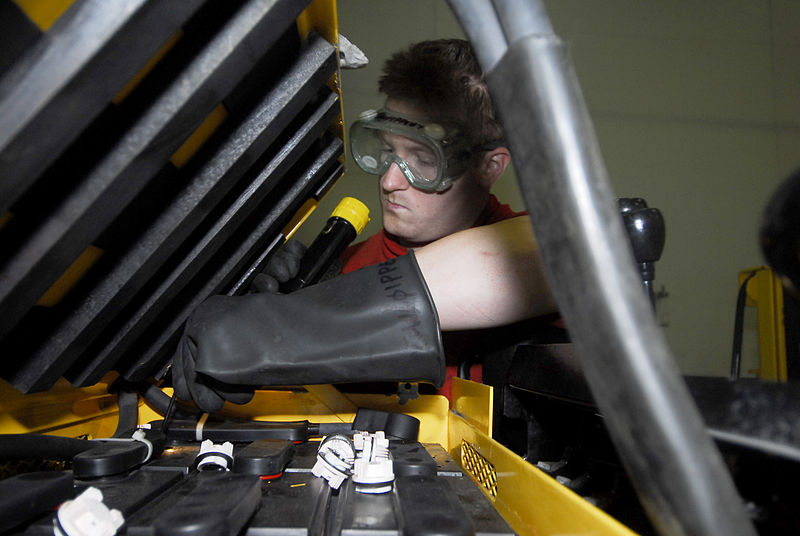More companies than ever before are turning to lithium power to run their vehicles and equipment. Lithium is a popular choice in the warehousing and construction sectors, with a huge number of lithium forklifts now being developed, rather than diesel- or gas-powered. In the future, lithium power could be the default for all forklifts and similar work vehicles, thanks to its rechargeable properties and its efficiency.
About lithium power
Lithium-ion batteries are extremely commonplace in the modern world. Lithium is most commonly used to power smartphones, tablets and laptops, providing plenty of power in a compact capsule that can be recharged relatively quickly. More recently, electric car manufacturers have used lithium to power their vehicles: and the use of lithium batteries is catching on in the construction and industry sectors. Aerospace engineers are also experimenting with lithium power.
Lithium batteries work by passing positive and negative electrodes through the battery unit, and passing them back when the battery is recharged. They have a relatively long shelf-life and can power a device for several years before they need to be replaced. They can be recycled, making them an environmentally friendly option as long they are disposed of correctly.
They can replace traditional fuel-driven engines. This leads to a reduction in carbon emissions. Battery powered vehicles are economical, requiring regular charging rather than refueling with costly diesel or petrol.
Lithium forklifts
It has been more than a decade since the first lithium-ion powered forklift appeared, but the technology is only just starting to catch on among mainstream manufacturers. In the last few years, there has been a surge in lithium-powered machinery development, and some of the biggest names in industrial equipment manufacturing are using lithium power to replace fossil fuels, and bulky, dated acid-powered batteries.
Lithium batteries can store more energy than a traditional battery unit, so they are far more efficient. Lithium forklifts can run for three times as long before it needs charging, so your workers can be more productive and your equipment has far less downtime for charging. This is great news for owners of busy warehouses, where every minute of downtime is extremely costly.
Lithium batteries are newer than acid-based batteries, so they tend to be more expensive to purchase in the first instance. Over time, the cost will reduce as the batteries become more common – but they may always cost a little more than the older style of battery. However, those costs will likely be offset by the savings you can make through improved work rate and reduced charging time.
Counterbalance trucks and lithium
The most frequently used type of forklift truck is a counterbalance truck. These are weighted at the back to compensate for the heavy load lifted at the front, to prevent the truck from tipping. However, modern electric forklifts often have no counterbalance, because the heavy internal battery serves a dual purpose. If you use electric forklifts, you will know that the low gravity centre of the heavy battery weight keeps them very stable – sometimes to the point of reducing mobility!
Lithium batteries, on the other hand, are extremely lightweight. The battery in your mobile is virtually weightless, for example. Of course, a battery large enough to power a forklift will have more bulk and weight to it – but it will still not be sufficient to act as a ballast for the truck. It is common to add additional ballast weight to these types of battery packs to retain manufactures specification/tolerances.
If you would like more information on lithium forklifts, contact Hiremech today. We can discuss your forklift needs and help you find the right truck for the best price. Call now on 0208 880 3322, or email sales@hiremech.co.uk and let our friendly sales team help you.

 020 8880 3322
020 8880 3322